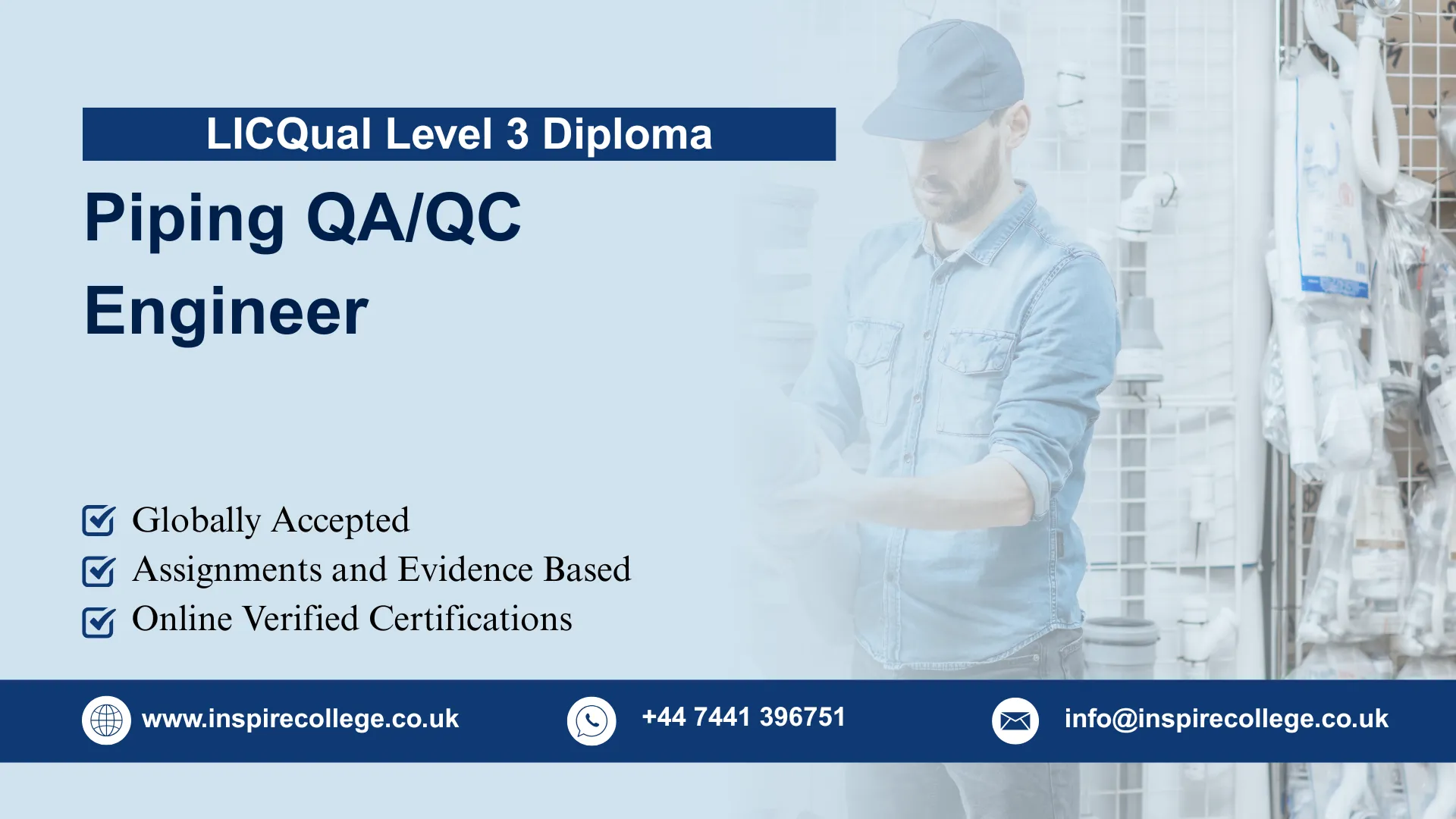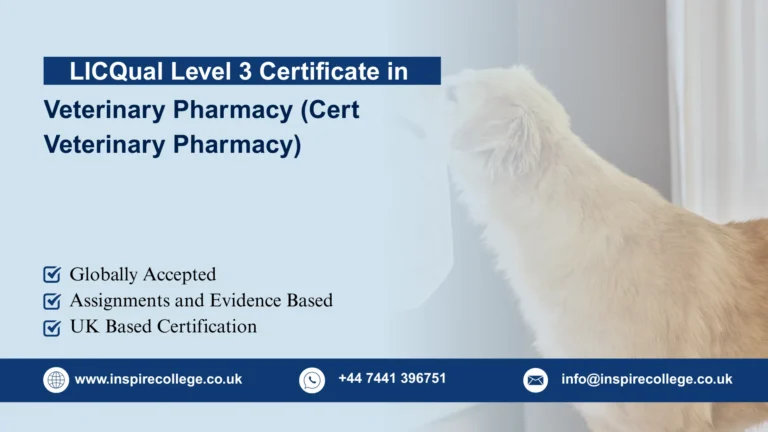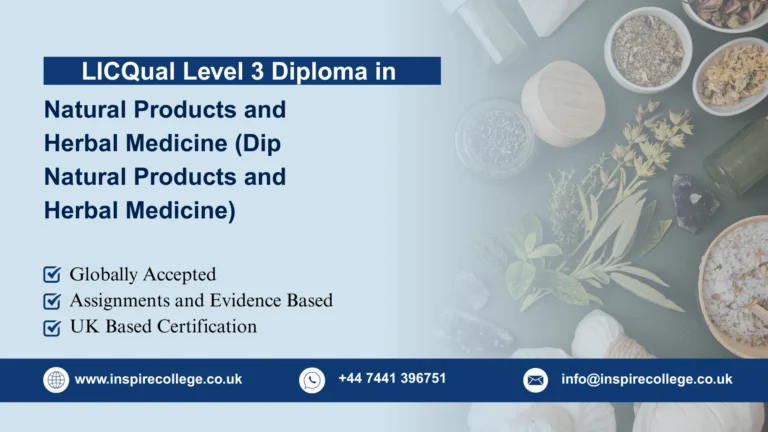
LICQual Level 3 Diploma in Piping QA/QC Engineer
The LICQual Level 3 Diploma in Piping QA/QC Engineer is designed for individuals aspiring to build a strong foundation in Quality Assurance (QA) and Quality Control (QC) within the piping and mechanical engineering industries. In today’s highly competitive sectors such as oil & gas, petrochemical, construction, and manufacturing, ensuring the integrity, safety, and compliance of piping systems is crucial. LICQual Level 3 Diploma in Piping QA/QC Engineer provides learners with the essential technical knowledge and practical skills required to excel in the role of a Piping QA/QC Engineer.
LICQual Level 3 Diploma in Piping QA/QC Engineer covers a wide range of topics, including piping drawings and isometric interpretation, welding inspection, quality standards, material selection, non-destructive testing (NDT), and documentation practices. Learners will gain a strong understanding of international industry codes and standards such as ASME, API, ISO, and ASTM, ensuring they are well-prepared to contribute to global engineering projects.
By enrolling in LICQual Level 3 Diploma in Piping QA/QC Engineer, learners will develop competencies in inspection procedures, quality audits, project-based QA/QC practices, and compliance monitoring. LICQual Level 3 Diploma in Piping QA/QC Engineer emphasizes both theoretical knowledge and practical applications, equipping students with the ability to identify quality issues, apply corrective actions, and maintain high standards of safety and reliability in piping systems.
Whether you are a technician, engineer, or professional aiming to specialize in piping quality control, LICQual Level 3 Diploma in Piping QA/QC Engineer provides the ideal pathway to enhance career opportunities, secure international roles, and contribute effectively to large-scale industrial projects.
To ensure learners are fully prepared to succeed in LICQual Level 3 Diploma in Piping QA/QC Engineer, applicants must meet specific academic, professional, age, and language requirements. These criteria are designed to provide a solid foundation for understanding quality assurance and quality control principles in piping and mechanical systems, while enabling participants to apply practical skills in real-world industrial settings.
- Age Requirement
- Applicants must be at least 18 years old at the time of enrollment.
- This age ensures learners possess the maturity, responsibility, and professional readiness required to undertake a Level 3 diploma that involves advanced technical concepts, inspection procedures, and compliance monitoring.
- Educational Qualifications
- Candidates should have completed secondary education or hold a Level 2 or Level 3 qualification in engineering, mechanical systems, or a related technical discipline.
- This academic background provides essential technical knowledge, problem-solving skills, and analytical capabilities necessary for understanding piping systems, welding processes, and QA/QC principles.
- Learners with additional training in industrial safety, materials science, or mechanical technology may find it easier to engage with advanced course topics.
- Professional Experience
- While prior experience is not mandatory, applicants with at least one year of relevant work experience in piping, welding, mechanical systems, or industrial quality assurance and quality control are highly recommended.
- Practical exposure to industrial environments allows learners to contextualize theoretical knowledge, understand QA/QC processes, and develop hands-on skills in inspection, testing, and compliance monitoring.
- Experience in manufacturing, construction, oil & gas, or mechanical maintenance roles will be particularly beneficial.
- English Language Proficiency
- As LICQual Level 3 Diploma in Piping QA/QC Engineer is delivered entirely in English, learners must demonstrate basic proficiency in reading, writing, and comprehension.
- Strong language skills enable participants to follow technical instructions, understand course materials, engage in discussions, and complete assessments successfully.
Mandatory Units
The LICQual Level 3 Diploma in Piping QA/QC, achieve the qualification candidates must achieve all of the mandatory units:
Mandatory Units
Upon successful completion of LICQual Level 3 Diploma in Piping QA/QC Engineer, learners will be able to:
1. Advanced Piping Design and Isometric Drawing Interpretation
- Analyze complex piping engineering designs and isometric drawings to accurately identify components, dimensions, and specifications.
- Apply advanced interpretation skills to translate isometric drawings into practical applications for fabrication, erection, and installation.
- Evaluate piping design layouts against project requirements to ensure compliance with engineering and quality standards.
- Develop solutions to design-related challenges in piping systems to enhance quality, efficiency, and operational reliability.
2. International Standards and Codes (ASME, API, ANSI, ASTM)
- Interpret and apply international standards and codes, including ASME B31.3, API 1104, ANSI, and ASTM, to ensure compliance in piping projects.
- Assess the relevance of specific standards to various piping applications, considering factors such as material, pressure, and environmental conditions.
- Implement quality control measures aligned with global codes to ensure safety and reliability of piping systems.
- Verify compliance with international standards through systematic documentation, inspection, and QA/QC procedures.
3. Welding Inspection, NDT Methods, and Testing Procedures
- Conduct detailed welding inspections to identify imperfections such as cracks, incomplete fusion, or porosity.
- Apply non-destructive testing (NDT) methods, including ultrasonic, radiographic, and magnetic particle testing, to evaluate piping integrity.
- Interpret NDT results to assess weld quality and recommend corrective actions when necessary.
- Execute welding and testing procedures safely and accurately, adhering to industry best practices and project specifications.
4. Piping Fabrication, Erection, and Installation Quality Control
- Implement quality control procedures during fabrication, erection, and installation to ensure adherence to project specifications.
- Identify and address defects or non-conformities to maintain structural integrity.
- Monitor and verify alignment, fit-up, and assembly techniques for high-quality piping installations.
- Collaborate with project teams to integrate quality control measures throughout all phases of fabrication and installation.
5. QA/QC Procedures and Project Quality Planning
- Develop and implement comprehensive QA/QC procedures to maintain consistent quality across piping projects.
- Create project quality plans aligned with client requirements, industry standards, and regulatory guidelines.
- Evaluate the effectiveness of QA/QC procedures through audits and inspections, identifying areas for improvement.
- Coordinate with stakeholders to integrate quality planning into project schedules, budgets, and resource allocation.
6. Practical QA/QC Case Studies and Site Reporting Techniques
- Analyze real-world QA/QC case studies to identify best practices and solutions for common piping project challenges.
- Apply practical QA/QC techniques to address issues such as material defects, welding errors, and installation non-conformities.
- Develop accurate and detailed site reports to document inspection findings, non-conformities, and corrective actions.
- Utilize effective communication and reporting techniques to present QA/QC outcomes to project teams and stakeholders.
The LICQual Level 3 Diploma in Piping QA/QC Engineer is designed for individuals seeking to develop specialized expertise in quality assurance and quality control within piping systems. LICQual Level 3 Diploma in Piping QA/QC Engineer is ideal for:
- Aspiring Piping QA/QC Engineers: Individuals aiming to start a career in quality control and inspection across industries such as oil & gas, petrochemicals, and construction.
- Engineering and Technical Diploma Holders: Graduates or diploma holders in mechanical, industrial, or petroleum engineering seeking advanced skills in piping QA/QC.
- Welders, Pipe Fitters, and Fabricators: Skilled workers looking to transition into quality inspection, documentation, and supervisory roles.
- Junior Engineers and Technicians: Entry-level professionals aiming to expand their capabilities in piping inspection and quality management systems.
- Site Supervisors and Project Coordinators: Professionals responsible for overseeing piping projects and ensuring adherence to quality standards.
- Quality Control Assistants and Inspectors: Individuals currently working in QA/QC roles who want to upgrade their qualifications and improve career prospects.
- HSE and Compliance Officers: Professionals seeking to integrate piping quality standards into health, safety, and environmental practices.
- Contractors and Subcontractors: Personnel delivering piping services who must comply with client quality control requirements.
- Freelancers and Consultants: Independent professionals aiming to gain credibility and expand consultancy services in QA/QC for piping systems.
- International Job Seekers: Candidates targeting global projects or overseas employment in industrial piping and quality control roles.
LICQual Level 3 Diploma in Piping QA/QC Engineer equips learners with practical skills, technical knowledge, and industry-recognized credentials to excel in QA/QC roles, enhance employability, and meet international piping quality standards.
Whether you’re managing quality teams or striving for higher-level compliance responsibilities, LICQual Level 3 Diploma in Piping QA/QC Engineer equips you with the skills, credibility, and recognition to lead with confidence in any high-risk or high-performance electrical environment.
Register Now
FAQs for LICQual Level 3 Diploma in Piping QA/QC Engineer





